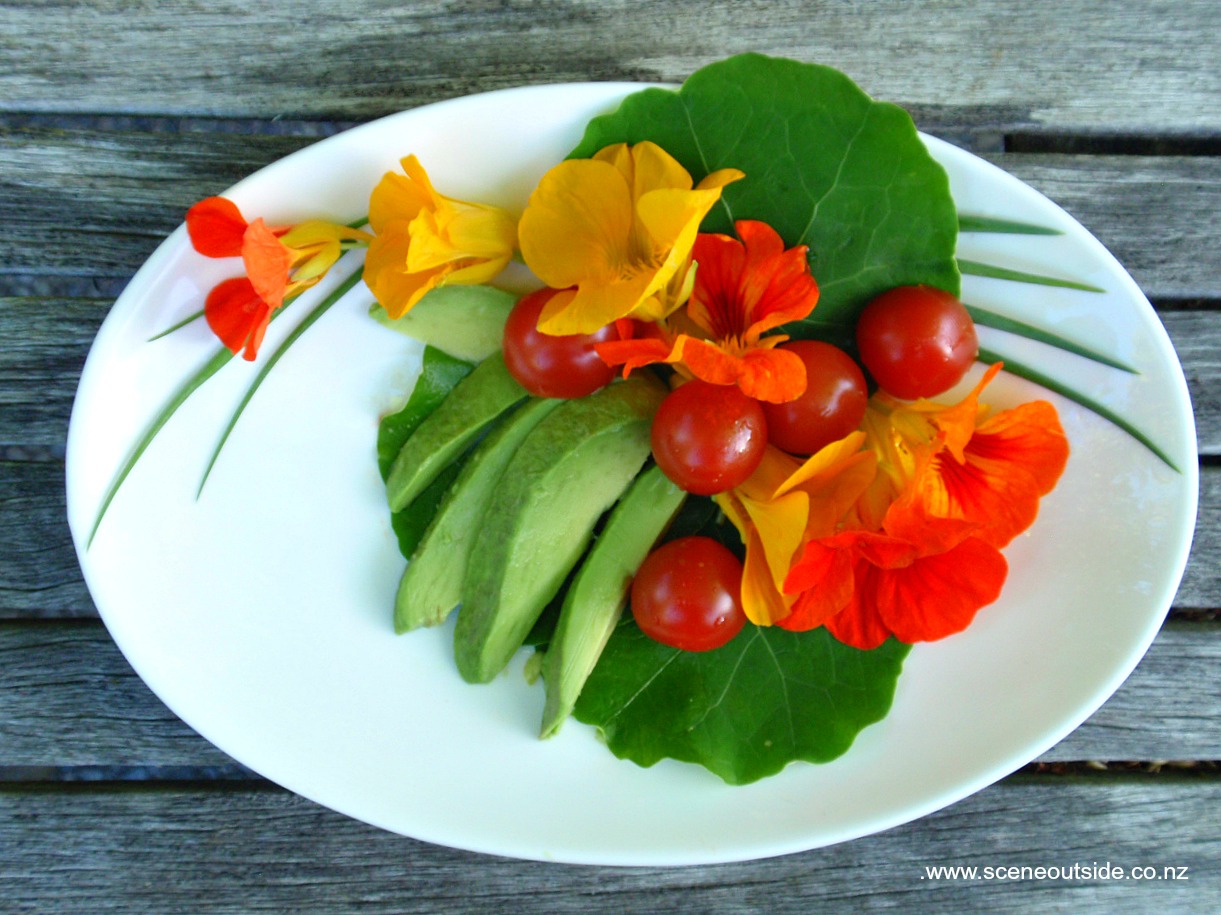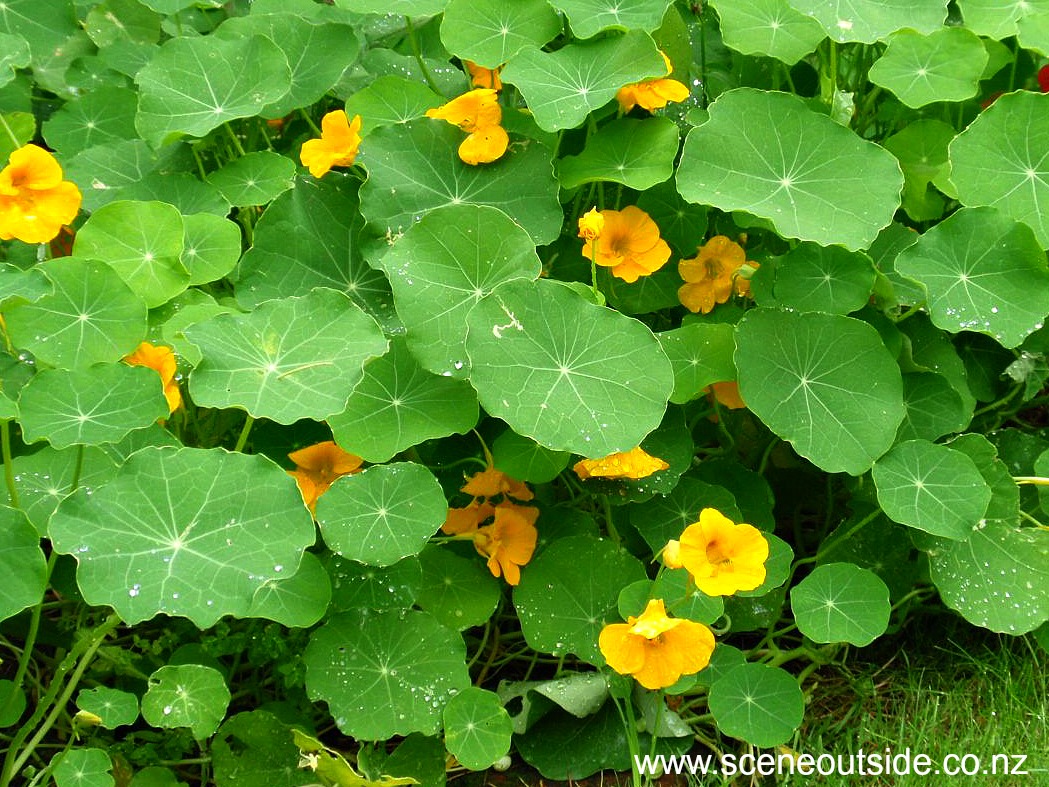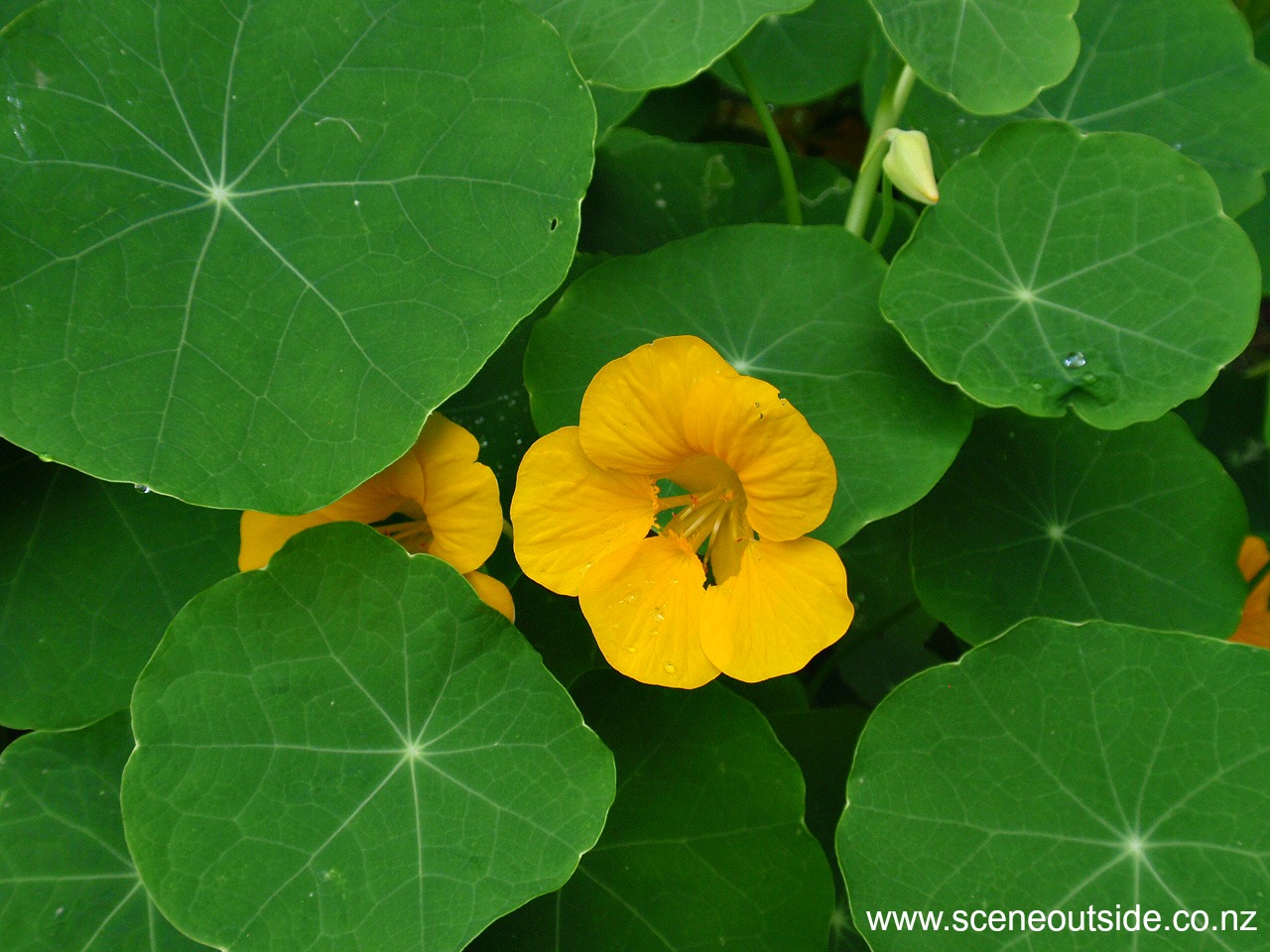


Tropaeolum majus
nasturtium, garden nasturtium, Indian cress
Annual trailing plant, native to South America. Rounded to kidney-shaped, light to mid green leaves with wavy margins and long petioles attached to the middle of the leaf blades. Flowering throughout summer with bright yellow, red, orange, or bi-colored, 4-6 cm wide flowers, produced in the leaf axils. Flower corolla with three large and two smaller petals, and a 2-4 cm long spur at the base. The edible flowers, leaves and seeds have a peppery taste. Although Tropaeolum majus is not difficult to keep under control in garden situations, in the wild it has become invasive in several parts of the world.
Prefers a position in partial shade or full sun with some afternoon shade. Flowering is best in soils with a low to moderate fertility. Very easy to grow from seed, planted after the last frost in spring. Spreads by self-seeding. Stems tend to trail along the ground, but when they reach other plants or a structure of some sort, they will happily climb upwards. Leaves are frost-sensitive.
Nasturtium is a lovely, happy, and versatile plant to have in your garden, and very useful in the kitchen. Use the flowers to brighten up a salad, add them to a sandwich, or fill them with cream cheese, guacamole, or feta. You can do the same with the leaves; roll them up and tie the stem around the rolls. Nasturtium does well in containers or hanging baskets, and loves to climb with a bit of help. Great to plant in combination with winter-early spring flowering bulbs, hiding unsightly bulb leaves from spring onwards with lush green foliage and brilliant flower colours in summer.
Type of plant
Herbaceous - AnnualSize
to 2-3 m long and .5 m tallLandscape Use
climber or ground-cover for flower display, containers, hanging baskets, coastal gardens, edible flowers, leaves, and seeds.Specifications
- Temperature: Frost tender
- Light: Medium High
- Moisture: Medium
- Soil: Light Medium Heavy
- Wind tolerance: High
- Coastal tolerance: High



